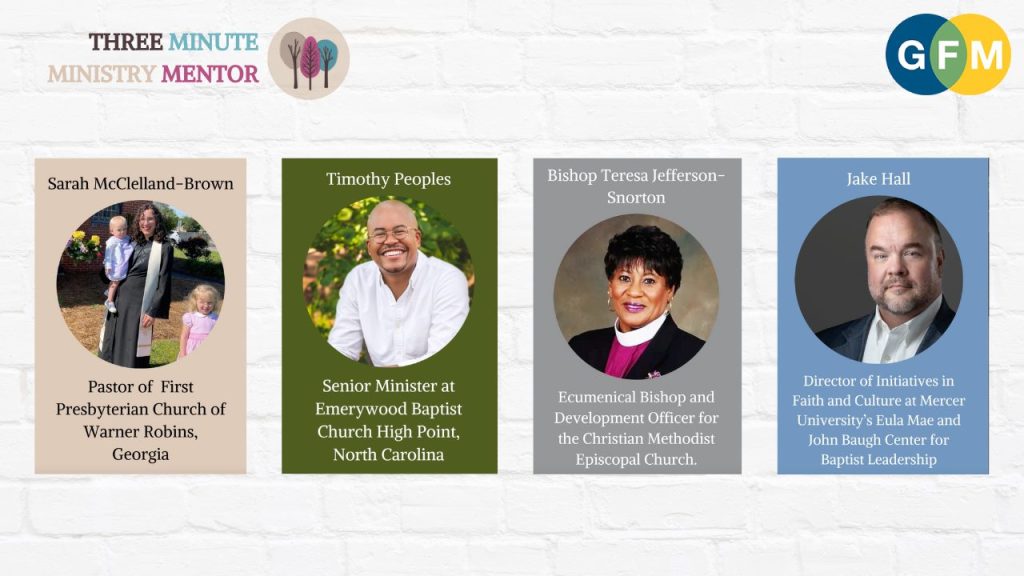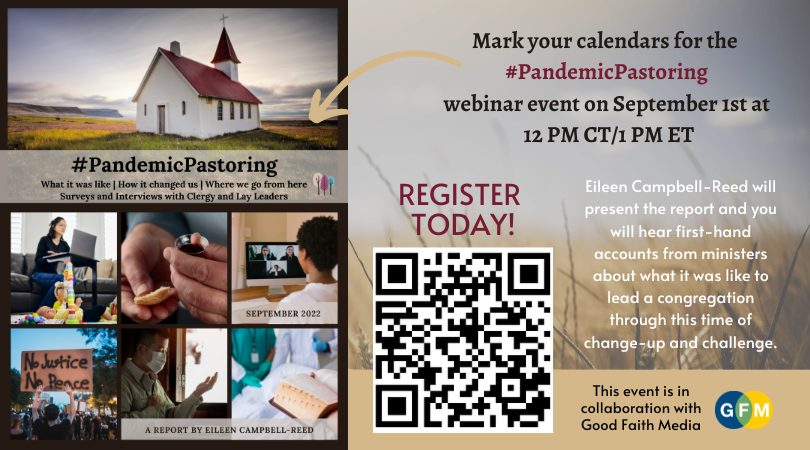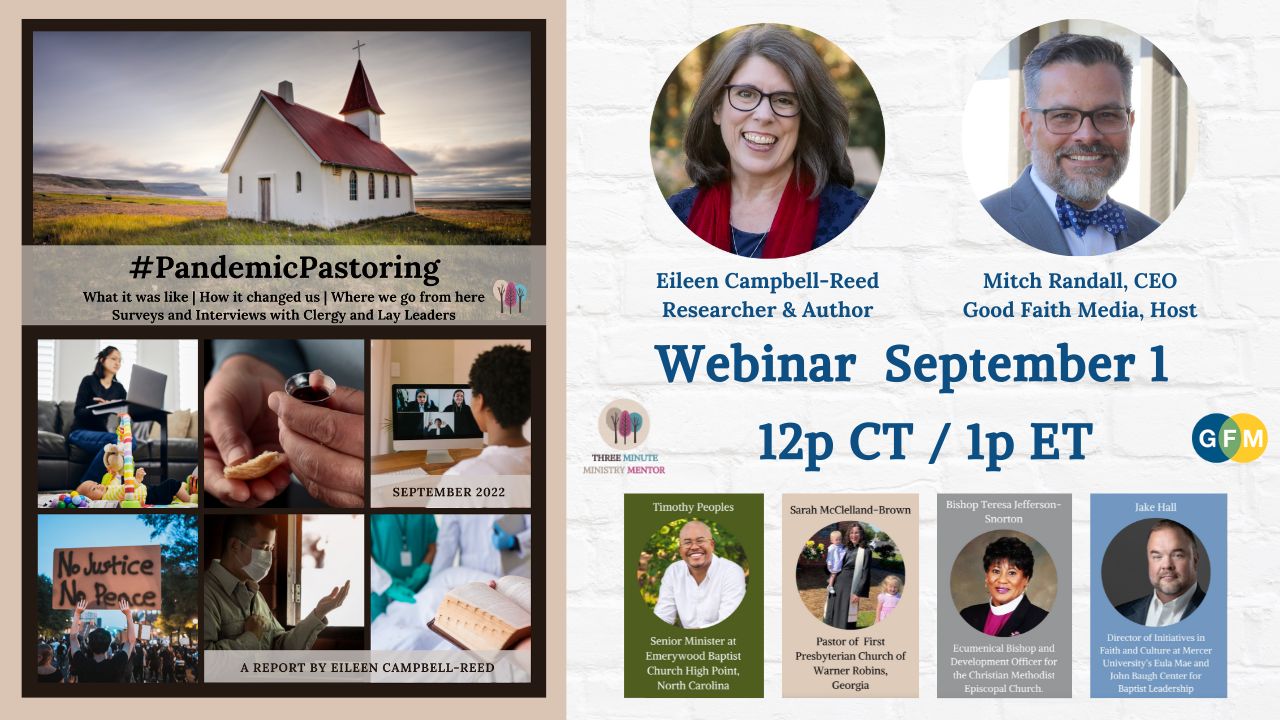We are now living in ministry’s new era. To even say that, sounds questionable to my own mind. Yet I look around at all the changes, and I think through all I have heard in the past 2+ years. And I don’t think I’m wrong.
I have spent the better part of two decades giving my pastoral and theological attention and my best learning to what it is to be in ministry and learn the practice of ministry. Thus, I suppose it was not surprising that I was thinking about how a global pandemic would impact ministers in churches and other ministry settings like hospitals and healthcare facilities from the very outset. Even before the World Health Organization declared a global pandemic, I wrote an article about pastoral care that “went viral“ – ironically.
(New option: watch the video with a transcript on Vimeo.)
In those early weeks of March 2020 it seemed possible that we would “flatten the curve” as everyone discussed. Yet I could also see much more sinister scenarios playing themselves out. I offered longer-term recommendations couched carefully with hopes of not offending but rather inspiring ministers to improvise. We needed new ways to make life in a pandemic somehow more sustainable. But of course I couldn’t fully grasp, as no one could, the impact and variety of ripple effects we would be living in 2+ years later.
Putting on My Research Hat
Fortunately by early June, with revelations of intense multiple pandemics shaking our social and spiritual fabric, I needed to put on my research hat. It was time to listen to the lives and ministries people in the Learning Pastoral Imagination study. The LPI Project was already a decade old, and we were gearing up for a round of 10-year interviews. In fact, we began in late 2019.
In June of 2020 we launched a survey, something we have done regularly in the past, and we sent it to our study participants. They began sharing powerful stories of how the Covid-19 pandemic and the social uprisings were impacting their lives and work.
At the time I was also working with Helping Pastors Thrive, an initiative of the Cooperative Baptist Fellowship of North Carolina and funded by the Lilly Endowment. With my friend, Scott Hudgins’, and other HPT mentors’ agreement we decided to surveyed the ministers in a new pastor cohort.
I began trying to write some public articles about what I was learning, particularly from chaplains, but everything kept changing so fast and morphing into new challenges and struggles. And I was completing the manuscript of Pastoral Imagination: Bringing the Practice of Ministry to Life. Fortunately I did incorporate some nuances and insights from ministry in 2020 into the book.
From all of these groups we learned so much. To help give voices and faces and stories to the #PandemicPastoring Report, we invited guests who can tell their stories from the front lines of ministry. You don’t want to miss the stories of these church leaders. Listen to my conversation with Mitch Randall and learn more about each leader.
 Visit our Instagram, Facebook, or Twitter accounts to see short videos about each of these ministers.
Visit our Instagram, Facebook, or Twitter accounts to see short videos about each of these ministers.
Expanding the Research Pool
In the spring of 2021 Dean David Jensen at Austin Presbyterian Theological Seminary contacted me. He wanted to survey and interview ministers and lay leaders, as well as other constituents, in anticipation of a curriculum review. He had funding, and he asked me to coordinate that aspect of the project. I delighted in working with a small team of APTS graduates to do the interviewing. With permission of the school and participants, I basically doubled the pool of ministers and leaders in the study. I also substantially increased the amount of data!
Even more significantly, I was able to add more lay leaders to the process. Far too often pastors and lay leaders are pitted against each other. Beginning with narratives in seminary, the antagonism can keep being recreated. What I found and will share in the #PandemicPastoring Report is a great many overlaps in experience. And there are also significant differences in the ways laity and clergy experienced the multiple pandemics. We need a better picture of both the similarities and the differences in order to close the gap and work collaboratively. Working together is one of the keys to navigating ministry’s new era.
And lay leaders have things they want their pastors to know. You can learn more about that by joining me this week for the Webinar on Thursday, September 1, and downloading the report when it is ready.
To register for the #PandemicPastoring webinar, visit here: https://3mmm.us/PandemicPastoringWebinar
To receive notification of the report’s release, sign up here: https://3mmm.us/PandemicPastoringSignUp
 Do you think we are living in a new era of ministry? Why or why not? What are the features of its difference to you? Who are your partners in navigating ministry’s new era?
Do you think we are living in a new era of ministry? Why or why not? What are the features of its difference to you? Who are your partners in navigating ministry’s new era?




